You are here
New Releases
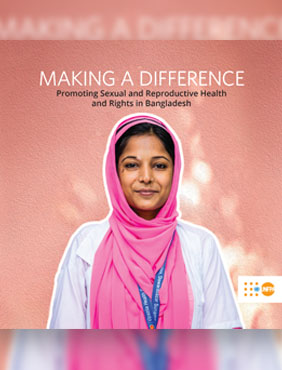
'MAKING A DIFFERENCE' Promoting Sexual and Reproductive Health and Rights in Bangladesh
MAKING A DIFFERENCE
Promoting Sexual and Reproductive Health and Rights in Bangladesh
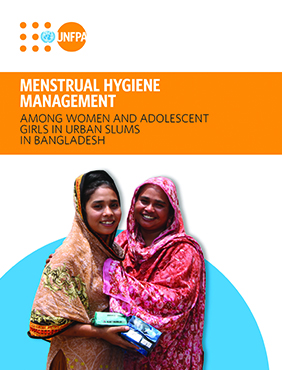
MENSTRUAL HYGIENE MANAGEMENT AMONG WOMEN AND ADOLESCENT GIRLS IN URBAN SLUMS IN BANGLADESH
MENSTRUAL HYGIENE MANAGEMENT AMONG WOMEN AND ADOLESCENT GIRLS IN URBAN SLUMS IN BANGLADESH
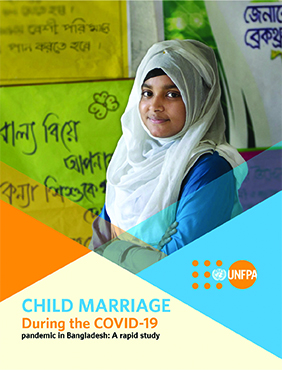
Child Marriage During the COVID-19 Pandemic in Bangladesh: A Rapid Study
Child Marriage During the COVID-19 Pandemic in Bangladesh: A Rapid Study
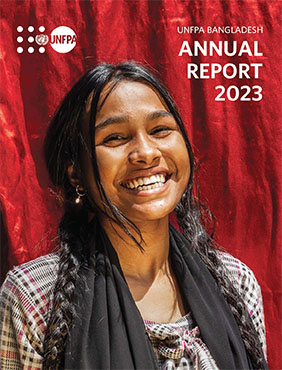
UNFPA Bangladesh Annual Report 2023
UNFPA Bangladesh's Annual Report for 2023 gives a comprehensive overview of the support that UNFPA continued to provide to the Government and people of Bangladesh during 2023. The results presented in this report represent thousands of human stories.
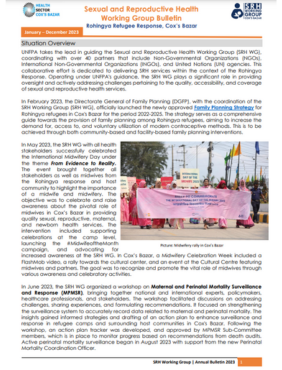
Sexual and Reproductive Health Working Group Annual Bulletin (January - December 2023)
Sexual and Reproductive Health Working Group Bulletin. This bulletin is based on data reported by the SRH Working Group partners between January- December 2023.
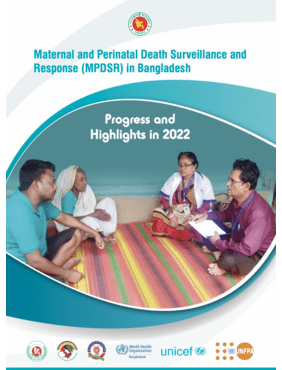
Maternal and Perinatal Death Surveillance and Response (MPDSR) in Bangladesh
Bangladesh initiated the implementation of the maternal and perinatal death review (MPDR) system in 2010 with the aim of achieving the Millennium Development Goal targets on maternal mortality reduction by 2015. The MPDR system was piloted between 2010 and 2015, initially covering 10 out of the country's 64 districts. Drawing on lessons learned from implementation and international guidelines, the program was subsequently updated and renamed as the Maternal and Perinatal Death Surveillance and Response (MPDSR) system in 2016. It became an integral part of the government's routine program and gradually expanded its geographic coverage, eventually encompassing all 64 districts by 2022.
UNFPA, UNICEF, and WHO Bangladesh, along with other development and implementing partners, have been strong technical collaborators with the Government and Ministry of Health and Family Planning, providing support for the nationwide implementation of MPDSR.
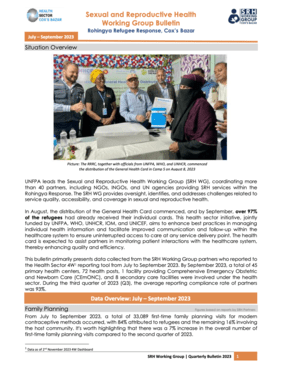
Quarterly Sexual and Reproductive Health Working Group Bulletin Rohingya Refugee Response, Cox’s Bazar, July – September 2023
Quarterly Sexual and Reproductive Health Working Group Bulletin. This bulletin is based on data reported by the SRH Working Group partners between July - Seotember 2023.
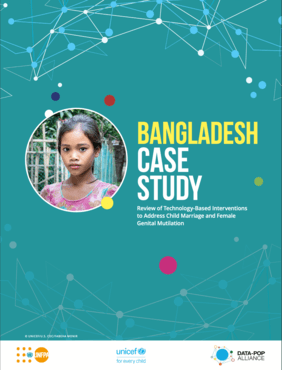
Bangladesh Case Study: Review of Technology-based Interventions to Address Child Marriage and Female Genital Mutilation
There is currently no data available on the practice of FGM in Bangladesh. The lack of data evidencing the prevalence of FGM in Bangladesh can be attributed to the lack of attention from national governments and the international community as to how this practice occurs in countries in the Asia-Pacific region, considering that much of the work related to advocacy and prevention efforts are focused on countries of high prevalence in Africa and diaspora in Europe.
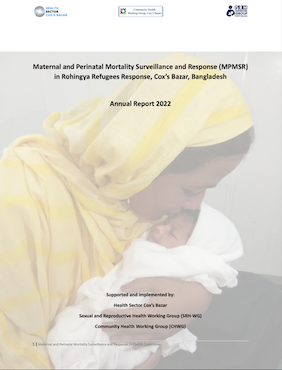
Maternal and Perinatal Mortality Surveillance and Response (MPMSR) in Rohingya Refugees Response, Cox’s Bazar, Bangladesh - Annual Report 2022
The Maternal and Perinatal Mortality Surveillance and Response (MPMSR) system is one of the quality improvement tools to reduce maternal and perinatal mortality, thus improving maternal and perinatal health. In Rohingya refugee camps, MPMSR started in 2019. The aim of the annual report is to capture and document the latest status of maternal and perinatal mortality in the camps for tracking, monitoring, and establishing evidence based implementation plans for maternal and perinatal health services in the camps. Continuous mortality review and audit are provided by the MPMSR, which links the quality improvement procedures and the health information system at all levels, from the local to the national level.
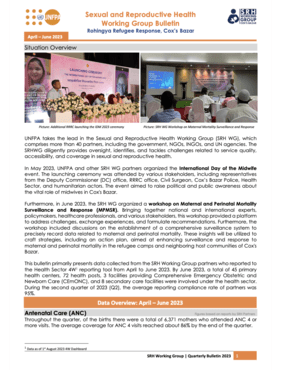
Quarterly Sexual and Reproductive Health Working Group Bulletin Rohingya Refugee Response, Cox’s Bazar, April – June 2023
Quarterly Sexual and Reproductive Health Working Group Bulletin. This bulletin is based on data reported by the SRH Working Group partners between April - June 2023.